Episode 288 - Entrepreneurs and Pastors: More Alike or Different? with Mark Batterson, Chip Ingram, and John Mark Comer
“For every church we plant, we need to start a business.”
- Mark Batterson
Can Faith Driven Entrepreneurs really partner with their churches? What would that partnership even look like?
In last week’s episode, we talked about the need for partnerships between entrepreneurs and pastors. In this episode, we highlight the voices of three pastors–Mark Batterson, Chip Ingram, and John Mark Comer–who have seen the power of working alongside entrepreneurs for the good of their communities.
We believe the church and entrepreneurs can do more together because they’re better together.
Hear how these pastors are partnering with entrepreneurs.
Other Episodes:
All opinions expressed on this podcast, including the team and guests, are solely their opinions. Host and guests may maintain positions in the companies and securities discussed. This podcast is for informational purposes only and should not be relied upon as specific advice for any individual or organization.
Episode Transcript
Transcription is done by an AI software. While technology is an incredible tool to automate this process, there will be misspellings and typos that might accompany it. Please keep that in mind as you work through it.
Joseph Honescko: Whether you've tuned in this show for all 200 plus episodes we've ever recorded, or this is your first time here. My guess is that you're listening right now because you believe that God can work in and through the marketplace. You believe in the power of faith driven entrepreneurs. You've seen the impact they can have on communities, cities, and nations. But if you're like most entrepreneurs, you might feel like this kind of work has to happen outside of your church context. In this episode, we hope to prove you wrong. This is going to be a part two from last week's conversation with David Kinnaman, where we talked about how we might heal the historically challenging relationship between pastors and entrepreneurs. Go back and listen to that one, if you haven't already, because this episode is going to build on that momentum by sharing some incredible stories of pastors who really understand and support the entrepreneurs in their congregations. You'll hear the entrepreneurial spirit that runs through Mark Batterson and his church in Washington, DC. Then Chip Ingram will talk about how entrepreneurs and pastors can experience the changing power of the Holy Spirit. And finally, we'll land with John Mark Comer, sharing some powerful and challenging insights about how every pastor and every entrepreneur can see their work as a loving contribution to God's kingdom. I'm Joey Honescko, and you're listening to the Faith Driven Entrepreneur podcast. Let's get into it.
Mark Batterson: In 1996, my wife Laura and I inherited a core group of 19 people, started pastoring National Community Church in Washington, D.C. and I better backdrop this. We were coming off of a failed church plan. When I was in seminary in Chicago, ripe old age of 22. Amazing how much, you know, at 22, you almost have everything figured out. So we needed a little unlearning. That church plan attempt failed and I learned two lessons. One, the cure for the fear of failure is not success. The cure for the fear of failure is failure in small enough doses that you build up an immunity to it. You realize that God's there to pick you up, dust you off. I don't know anybody in ministry or in business that doesn't have a few failures notched on their belt. And I would say this failure typically is poorly managed. Success and success nine times out of ten is well-managed failure. So failure is part and parcel. I'm guessing a few of you have a few failed businesses like I do on my resume. And so we started with 19 people in DC, and we have a couple of core convictions. Church ought to be the most creative place on the planet. I believe that two church belongs in the middle of the marketplace. And let me explain that Jesus didn't just hang out at the synagogue. He hung out at Wells. Wells were natural gathering places and ancient culture. And so actually, our first entrepreneurial endeavor was turning a crack house on Capitol Hill into a coffeehouse. And why would we do that? Because we wanted to create a place where church and community could cross paths. Plus, the Holy Spirit plus caffeine equals awesome. Pretty amazing having a coffeehouse where we keep Capitol Hill caffeinated. And I should say this for the record, if you're going into any business, you better be able to compete in terms of excellence in product or even over the top hospitality, like let's do it and do it well. And so Ebenezer Coffee House voted number one coffee house in DC many times. And every penny of profit we give to kingdom causes. And so we in Ward seven, a part of our city that's underserved and under-resourced. We have a DC Dream Center that is impacting thousands of kids. It is, one of the most important things we do. That ministry, which was a $5 million project to build, was funded in large part by our coffee house. And so I'll just share a personal conviction for every church we plant. We need to start a business. And part of that comes from the fact that we have received gifts from those who have an amazing mind for business, and a heart for the kingdom that has propelled us forward as a church. And so we own and operate Ebenezer Coffee House. We also operate the only movie theater on Capitol Hill, which is unique. We believed that in a sense, the screen is almost like post-modern stained glass. So the medieval church used stained glass to paint pictures for those who are illiterate. We use moving pictures to communicate the message of the gospel. And so now we find ourselves with a city block. Ebenezer is one corner of that circle and the building where I am right now, the capital. Turn around. It was built in 1891. Navy yard car barn, and it's 100,000ft². It's an amazing property across from the Navy Yard, less than a mile from the Capitol and in the riverfront neighborhood, which is the fastest growing part of DC. Long story short, I turn the corner of this building in 96. We bought it 18 years later to the day from the day of that prayer circle. And so we are building it out as a mixed use marketplace instead of just building a space where we gather on the weekend to worship, we pulled out all the stops and built by the 1000 seat auditorium that others could use for concerts. Conferences will host about 100. Rid events this year. Those 100 events will revenue stream about $1 million. And it's a win win because not only does it help finance the kingdom, people don't know it, but everybody who walks in, I'm going to pastor them. I'm going to love them. We're going to show hospitality to them. And so we've had NBC rent the space to film. Amazon has rented it for events. DC government does events here. First lady has been here several times. What that allows us to do is to be a church in the middle of the marketplace. And so I hope you hear the heart behind this. A church that stays within its four walls is not a church at all. So we're cognizant about things like as we build out this marketplace, there is the unintended consequence of gentrification. So how can we employ people that maybe are returning citizens? How can we employ people that maybe are in an underserved, under-resourced part of our city now? Our kids ministry space, which we use on the weekend, also doubles as a child development center. So the mayor said a couple of years ago, mayor of DC, that there weren't enough spaces for childcare. And so we thought we can meet a real need in real time and create a win win scenario. So we partnered with our friend Frank Bieler, faith Family, and we turned our children's ministry space into a child development center Monday to Friday. Now, the next phase of this vision is to build out a mixed use marketplace. What we want to do is empower our entrepreneurs. There are several dozen nonprofits, and for profits that just in the last decade have evolved out of this ecosystem that we call Nashville Community Church. And so what we want to do is actually empower them. And so we'll have a couple of sit down restaurants, as well as about 15 pop up, mixed use retail and restaurant concepts. And the idea is this, can we do and be the church beyond just a weekend gathering? Whatever it is that you do, that is your pulpit and the people you work with that is your congregation when. So when we approach business that way, there are people that will pop into a coffee shop or go see a movie, or want to get a pair of shoes or any kind of service industry. You name it, dog grooming, whatever it is. And so what I'm believing is that there are a lot of entrepreneurs with some God ideas. It's going to take some faith. And so thanks for letting me take a few minutes sharing a little bit of our story and with the help of the Holy Spirit, take that God idea, take it captive and make it obedient to Christ. Second Corinthians ten five. It's going to take blood, sweat and tears. It's going to take time, talent, treasure. But I pray God's anointing on your life in Jesus name, Amen.
Joseph Honescko: Mark provides a great image of what it looks like for pastors to champion entrepreneurs. And this next section, Chip Ingram talks with Henry Kastner about some of the chapters he contributed to the Faith Driven Entrepreneur book, where he talked about stewardship versus ownership, being faithful versus willful. And maybe most shockingly, the surprising overlap between pastors and entrepreneurs. Chip will also share from another book he has about how the Holy Spirit has the power to change us into the people God has called us to be.
Henry Kaestner: So you've got chapters on stewardship. Faithful and willful, and what pastors and entrepreneurs have in common. What are some takeaways that people can look forward to reading about with that?
Chip Ingram: I think for high energy active entrepreneurs, the challenge and this is true of pastors that have an entrepreneurial spirit as well, is what's my part and what's God's part. I mean, we talk about you're a steward, that okay, I'm supposed to rest and trust in God and His wisdom. Not strive. Not be a workaholic, not feel this unbelievable pressure to make it happen. And yet I'm not to be passive. How do you do that? That's what I think we address in this book. I think in an understandable way. I think it's foggy and vague and try and entrepreneurs hit it and miss it, and we just go sort of we zoom out of balance, one direction only, the pendulum to zoom out of balance in the other direction. And I think this book will really help entrepreneurs in that, to discern that, to realize, you know, I don't have to keep telling those around me. You know, once we get through this big launch, once we get through this, once we do this, once we do that, then things are going to change, which is the lie that we tell ourselves and those that love us. It is possible to be at rest, to have a peaceful heart, to take risk, to be very engaged and intense at times, and also to know when to say no and not feel like the world depends on me. And that's as much or more an art as it is a science. And I think you and JD speak well to that, and I gave it my best shot as well.
Henry Kaestner: Yeah, it was a very, very good shot. I'm very grateful. It's a real treat for me. So as much as I'm semi tempted to talk more about some of the issues that we unpack there, I'm also a little uncomfortable about the self-promotion, but I feel much better about talking about a book that you're coming out with that I think is really important. And it's called yes, You Can Really Change. Talk to us about it. What's in the book? What's it about? What's the reason for writing it?
Chip Ingram: Well, it is about life change. I mean, we are made. Entrepreneurs know this more than anyone else. The status quo makes us crazy. I would say the status quo. I don't want to be irreverent. It makes God crazy. We were made to change. His goal is to make us more and more like his son. And so this book is it's really about how change happens. My experience after many years as a pastor, rubbing shoulders with, you know, business leaders, CEOs is there's this once the external change is like, okay, the big morals or maybe my language or, you know, I basically tell the truth in business deals. There's those internal things that often get stuck. Greed, lust, resentment, anger. Unresolved conflict. Comparing yourself with others. God has an agenda and a way to transform us from the inside out. And my experience is most Christians don't know what that looks like. Most Christians are trying very hard to be a good person and involved in some good religious activities and some spiritual disciplines. But when you peel all that away, there's some things that God longs to change and they're really stuck. They really don't know how that works.
Henry Kaestner: So when people read it and they're feeling stuck and they want to get out of being stuck, what's it take away that you want the readers to get at and just you hope that changes in their lives afterwards? One thing, again, just the takeaway and not in any way that short change is the very important of unpacking how you get there that you're able to do in the book. But give us a takeaway, please.
Chip Ingram: The fundamental takeaway is verse one of Ephesians four. It's grasping how deeply you're loved, who you really are and whose you are. And then walking in a manner that is worthy of Christ. It's spiritual maturity. It's becoming like Christ in your speech, your thoughts, your actions, your business. And here's I'll make a fine distinction. Not working hard to look like you have good speech. Good action. You know, I wrote my journal. I'd like to say it was 20 years ago, but it was about a year and a half ago. And it was one of those defining, honest moments with God and a time of repentance, actually. And I remember writing father, I realize at times I spend more energy trying to look humble and more energy trying to look loving than I actually spend being humble and being loving. And you know, that part of our DNA. If you're an entrepreneur, it's make it happen. And if you want to make it happen, you are always tempted or most of us, to make the ends justify the means. And I think what I really long for people to see is living out of the overflow of your relationship with Christ that allows you to be at peace, that brings freedom, and honestly causes you to do things in ways that people shake their head and say, I didn't think you could be that kind of Christian and be successful in business. You're breaking a lot of the rules here, but you really believe in this Jesus that you talk about in this kingdom agenda that he has and that his upside down values. You know what? They don't make a lot of sense to me. You know, if you're an unbeliever that I'm in or that was the goal. Let your light so shine before men, right? That they could see your good deeds. That the evidence and how we actually live, how our business is run, how we treat our employees, how we respond to a crisis. What do we do when there is failure? How do we treat people who failed? The takeaway is doing that the way Jesus would do it if he lived inside your body. And if you're a follower of Jesus. That's the reality. Jesus lives inside your body. You're his temple. And my dream is that people would learn just how to do that progressively, not perfectly, until we get to heaven and make a huge difference for God's kingdom.
Joseph Honescko: As we head to our last section here, you're going to hear from William, Rusty and John Mark Comer as they discuss what it's like to eliminate hurry from our lives and the joy that comes when we untether ourselves from the unnecessary stress of trying to control outcomes. William. We'll take it from here.
Mark Batterson: John Mark want to dig into the book a little bit, and I would just ask you to jump in. I mean, for those that maybe haven't read the book, you haven't been convinced yet, convince them that hurry is not just a symptom, but actually a root cause for so many of the problems that entrepreneurs may face.
John Mark Comer: Yeah. You know, Carl Jung said, hurry isn't of the devil. It is the devil. And you know, that's just a pithy saying, but there's something in it. You know, when Willard said, hurry is the great enemy of spiritual life in our day, it's hard to even agree with that, much less live that way. In a culture where hustle is a positive thing, not a pejorative, you know, and where the thought is, you know, do more, do faster, go go go. And of course, you have great writers, even from your neck of the woods. Greg McCowan and Cal Newport and others that are really pushing back on the myth of, you know, busyness equals productivity, you know, and that's obviously your space more than my space. So I've read just enough to be dangerous. But it's my clear understanding that God bless Elon Musk. But 80 hours a week of hustle is actually not the best way to make a meaningful contribution, or even grow your business or whatever your thing is. There's deep work, there's meaningful contribution. That's a very different thing at a different pace. But again, I come at it more a little bit less through the angle of, you know, vocation or productivity, though I think that matters. And I think it matters for Christians to be thinking about that. I think, you know, you can make a very biblical case for work productivity because time is precious. You have the whole concept of redeeming the time in the New Testament, and life is like a vapor. But I come at it more again, just to the angle of spiritual formation, of becoming more like Jesus, of growth and maturity. You know, let's again, let's just take the fruit of the spirit as our metric love, joy, peace, patience, kindness, goodness, gentleness, faithfulness, self-control. Hurry is incompatible with that entire list. So just think about love. You know, pretty much all of my worst moments, my most unloving moments as a husband, as a father, as a pastor, as a neighbor, as a friend are when I'm in a hurry and I don't have time to attend to my loved ones, to my family, to my community, or I'm there in body, but my mind's going 1,000,000mph, and I'm texting because I didn't get my work done for the day, and I'm not present to the person, or I'm present, but I'm too emotionally exhausted to actually have compassion on them and connect with them on an emotional level. You know, I'm just I have three kids. I have a wonderful wife who's late for everything. God bless her. Trying to get anywhere on time as a family is just like a minor war, you know? And some of my most unloving moments are when we're late for something. Get in the car. I don't have time. Stop crying. Get in the back of the car. We'll talk about it later. You know, why do you always do this? Some of my most unloving moments, you know, and really, most of life is interruption. C.S. Lewis again once said something to the effect of how you respond to an interruption is who you really are, which is like, oh my gosh, you know, I respond terrible to interruption because I don't have enough time. I don't have time for interruptions. This is not on my schedule and I have too much to do already. But most 80% of parenting is dealing with interruptions, and a huge chunk of life is navigating interruptions well. And so if we're so busy and such a speed and moving at such a frenetic pace, we'll miss these interruptions in these moments for love, we won't have the emotional capacity to sit with people, to listen, to attend to people with our full presence, to have compassion. So Japanese theologian who's passed away now, but he wrote this beautiful essay called Three Mile an Hour God. And I had to Google that. I had no idea what that meant. Apparently three miles per hour is the speed of walking, and he just has this whole short meditation on how God has the speed. And it's the speed of love, and love is a walking speed. And if God could go faster, he would. But God is love, so we can't. And I really think there's an inner and outer speed. There's a pace to love, a pace to the way of Jesus. That is when you look at the life of Jesus, he's unhurried. He's present to the moment. He's late for certain things on purpose. He has space, he has margin. He's just fully available to each person, prophetically aware of what God is doing in that moment and what God is calling him to do in that day. It's an extraordinary kind of model of human life. And then you could just go down the list, joy, you know what I mean? All the experts on happiness tie it to like, presents the moment. The more like grounded in your body and your breathing and presence of the moment in gratitude for what is right now, the happier you are. Peace I mean have. Just imagine, you know, being late for a flight or something, that feeling in your body when you're late and you're stressed and you have too much to do, it's it is not peace, whatever that's going through your body. It's not peace. It's anxiety and stress and all of that. So we could just go down through the list. And I just believe that hurry is incompatible with following Jesus, and not just with following Jesus at an emotional level like you won't have the love and joy and peace some people are legitimately very much type A. Busy people that can be really happy doing those things. But at the end of the day, our discipleship to Jesus is a form of relationship, and relationships of intimacy take a lot of time and they take intentionality, they take disciplines, they take covenant, and they're not efficient. My relationship with my wife is not efficient. My relationship with my three kids is wildly inefficient, and it's time consuming, and I don't always enjoy it. And sometimes I really enjoy it. But they're deeply meaningful to me. And at the end of the day, many of us are just too. It's not that we don't love Jesus. Ronald Heiser has that great line. We're more busy than bad. It's just that we don't have time to have much of a relationship with Jesus. Or when we do set aside time, we're going at such a speed and our mind is so distracted by our phone and the digital age and apps and alerts and pushes that we can barely even pay attention to Jesus, and prayer becomes just a way of like trying to calm a wild mind. So at some point, you reach a spot where in the same way with my wife, if I said, I love you, babe, I want to be with you forever. No matter how many times I said that if I worked 100 hours a week, never came home, didn't have a date night with her. I didn't have touch points with her. At some point she would say, honey, you actually you say you love me and you say you want to be an emergency, but you're not in a marriage. This is not a marriage. This is not a relationship, or this is barely one. You're doing something else. And I'm just here on the margins of your life. And at some point, you'd have to decide. Do I actually want to stay faithful to the covenant I made? Am I ready to be married or not? And sometimes I wonder if that's what kind of what our relationship with Jesus is. And that's not to shame anyone. It's more just like a sobering moment of wake up. Like, wow, is Jesus on the periphery, in the margins of my life? Or is he at the center? Is this a relationship of intimacy with the father and the son and the Holy Spirit? Or is this just like a kind of how we feel about the Warriors? Like, I'm a fan, it's great. I don't know if I have time to go to the game tonight. Hopefully they do good. I'll read about in the news tomorrow for 10s. Is that kind of more the relationship with Jesus? Are you a fan or are you a follower, a disciple, an apprentice of Jesus?
William Norvell: Oh that's amazing. And one of the things we like to just kind of hit a complaint, potentially, that some of our entrepreneurs might they might be thinking, you know what? That sounds great, but you don't know my life. I've got 50 employees. I you know, I've got shareholders. I told these investors things and, you know, that's the bargain I made. I have to work 80 hours a week. I'm an entrepreneur. Like that's what it is. Is this is this the way it's always been? Is this technology that caused this problem? Is there basically like, is there a way out? You know, I mean, for those type of people is, you know, hey, because I think what I heard you say is you're not telling you to sacrifice success. Actually, this will lead to success, right? But maybe go a layer deeper on that for our company leaders listening in.
John Mark Comer: Well, William, I mean, I'd love to have you answer that for me. I mean, of course I can quote to you, you know, the Microsoft study from last year that found a four day work where our five hour workday was, you know, increased productivity by 40%. I could quote to use study after study that says after 55 hours a week of work, your productivity plummets. And the difference between working 80 hours a week and 55 hours a week is almost negligible, which is really interesting because that's basically a six day workweek. And Jesus said, the Sabbath is actually two commandments for six days you shall work, and the seventh is a day of rest to God. So actually commanded to work, and we're commanded to rest, and we're it's a six and one rhythm, six and one and six and one. So all that to say, I could quote studies at you, I can tell you about my life and how I work. You know, I still work very hard, but I think you have to work smarter, not necessarily longer, but I think I'm more productive now than I've ever been as a writer, as a teacher, as a leader. But I've also had to make major sacrifices that I thought would permanently damage my career is kind of a gross word for a pastored years, but it's actually had the opposite effect. But I still think most people would write me off because I'm a pastor and a writer. What about you, William? What have you? Obviously you're habituated or attempting to habituate some of the stuff in your life. It's touched you at some heart level. How are you working it out?
William Norvell: Yeah, I mean, I think for me, I'm I'm in in the sense that I know it's right. And, you know, some of the stories you tell in the book around like, guess how long the average human used to sleep at night? That's right. Get 11 hours right prior to like, the invention of the light bulb. Right. It's like so when you think about these titans of industry, John Rockefeller and some of these people, they weren't working 90 hour weeks. No, that wasn't true. And I've read Ben Franklin's diary and he basically had an 8 to 5 schedule. And this guy invented all kinds of things. And, you know, and we as Christians have the gift of the Holy Spirit to move time and space outside of us if we submit to his will. And so, you know, this is an excited disciple working through it, saying, I see the light. I haven't put the light into practice, but the small pieces I've been able to. And so one you convince me of eight months ago as I turn my phone OFF every weekend, Saturday at 5 p.m. until Sunday at five. Well done. And I tell you, I find myself, of course, seeing my children differently. I found myself seeing my wife differently. And you know what? The weird stuff. I find myself just like staring at trees sometimes, too, and being like, that's a pretty tree. I didn't know that existed. Did you know God called trees beautiful? So that's how it's working out for me. I mean, it's an evolution, but I believe it. You know, it's kind of like the gospel, I believe it. I'm still working on trying to, like, capture it.
John Mark Comer: Yeah. You know, this isn't. I'm not an entrepreneur. You know, the classical sense. But I planted a couple of churches, and I'm starting a nonprofit right now, so I know a little bit of what that's like. Just that feeling of starting something from scratch. And, you know, I mean, a couple thoughts. One would be, be careful how you build. Be careful that you don't build yourself into a prison. You know, it's like you have read that book when you were kids. Mike Mulligan and his steam shovel. Anybody ever read that? Okay, well, if you have kids, get it? It's a great read. It's about this back in the day when they had, like, bulldozers. And he literally builds so fast that he digs this huge cellar for like a town library or city hall. I think it's a city hall in like small town America. It's an old book. And he builds so fast and he stirs up the dust and it's like, nobody's ever done it this fast. And then he gets to the bottom and he realizes that he didn't build a way out, and now he's stuck at the bottom of what's supposed to be the basement of the city hall. And it ends up it ends with, like, the steam engine becomes like the furnace, and he becomes like the caretaker. So it has a happy ending. But there's something of that where sometimes we build so fast and so furiously that we build ourselves into a prison, and all of a sudden now we can't escape the building or the company or the organization that we start. So be careful how you build. Another thought would just be, remember, there are seasons to life and don't let a season become normal. Sometimes there are just seasons where what's required of us as leaders is far outside of our kind of healthy rhythms, and what we would say is a balanced life, you know? And balanced life can be a misleading thing. And like, you know, there are seasons to life. But it's one thing to have a season for a year, 3 to 6 months. It's another thing to let that become how I live. And so now I'm having to intentionally alter my life, like even rebuild. You know, that my body has this time of day when it's done working. You know, for the last year, it's been several hours later than it should be. And so I'm having to rebuild that kind of muscle memory. All right. It's time to go home now and help my wife cook dinner. Third thing I would say is, you know, and this will only appeal to certain personality types, but if you're at all like me, I'm pretty duty base, pretty workaholic. I probably have more freedom as a leader than I let myself take advantage of. And I've met a number of like business owners, entrepreneurs, pastors, and when you actually meet them and look at their life, they're not nearly as busy or stressed out as you would imagine. They are. You know, they get those of the burrito principle, whatever it's called, where, you know, 20% of your work yields 80% of your results. So they're all about that. Forgive me if I have the math off or the name off, but they're all about that 20%, you know, and they nail the 20% every week. And then they kind of have a house. And they, you know. They golf or whatever they do, and they live well, because part of it is like, how do we be healthy human beings for decades, you know? So I do wonder, you know, if there's more flexibility, creativity, freedom as far as how we structure our lives as leaders, then sometimes we allow ourselves to.
Rusty Rueff: So I'm going to ask you to return to the pulpit and use those altar calls skills here. Speak directly to our entrepreneurs. Tell them what's on the other side if they, you know, can adopt this philosophy. Slow down, eliminate, hurry in their lives.
John Mark Comer: Well, I mean the gift is I mean gosh just at a heart level. Okay. Read the book if you want to hear more about the heart level let me just talk to entrepreneurs. Don't hear me wrong. I care deeply about work, not just quote sacred work but secular work. And that bifurcation is not helpful. But man, there is such a difference. There is such a freedom and joy and greater courage and boldness when work becomes not an ambition, not a God that you are looking to for an identity, for a sense of happiness that you need, but rather it becomes just an act of loving contribution. It actually enables you to have your work come from a place of deep courage, because you can do what God's actually putting your heart, not just what you feel you need to do to make a certain amount of money, or be liked or meet a certain criteria. You can actually be more bold, more daring, more faith driven, as you would say, more creative, more compassionate, and more free when you get to the spot. So much of, I think spiritual formation, discipleship, Christian spirituality, whatever you want to call it is about coming to a place in our heart where we are detached in a healthy way from outcomes, where how we live really matters. And the work that God's called us to do. The business is called us to lead or start or. Whatever my case. You know, the books he's called me to write and the teachings he's called me to do. It all matters a lot. But, man, my emotional well-being is not tied to the outcomes, you know? So for me, I'm not an entrepreneur. You know, I'm a writer. And so I have a new book coming out, and I'm really worried that it's not going to do very good. I mean, my last one did really good, and that's totally out of my control. And so if I can get to the spot where, man, I know what God's called me to do to write this book, and I want to work my tail off, I want to make it the best thing I've ever done, and I want success to be man. And this was born out of prayer and sweat and blood and tears in my life and our church. And here it is. And that success, whether three people read it or 300,000 people read it. I'm not in control of that. I abandon outcomes, and I'm not emotionally dependent on either outcome. For me to be at a place of peace and love and joy, that is what has the potential to come. Not just if you slow your life down, but if you actually recalibrate your metrics for success.
Joseph Honescko: So what is your metric for success? Is it growth at all costs? Is it some set amount of money or level of prestige? What would it look like to bring those metrics before God and allow him to shape them? Or maybe even more challenging. What would it look like to bring it before your church, before your peers and say, hey, this is what I struggle with. Our hope is that entrepreneurs and pastors would continuously grow closer together because we believe they're better together. The world needs faith driven entrepreneurs, and faith driven entrepreneurs need churches who understand and support their vision. We need pastors who can shape us and challenge us and all of us, no matter our roles, need the spirit of the living God to make us into the people were called to be. Thanks for listening to today's show. If you found it helpful, follow us, read the show and share it with someone else. Maybe it's your pastor, maybe it's another entrepreneur. Whatever. You can also learn more about our organization and the resources and groups we offer at our website. FaithDrivenEntrepreneur.org. Thanks for tuning in. We'll catch you next week.





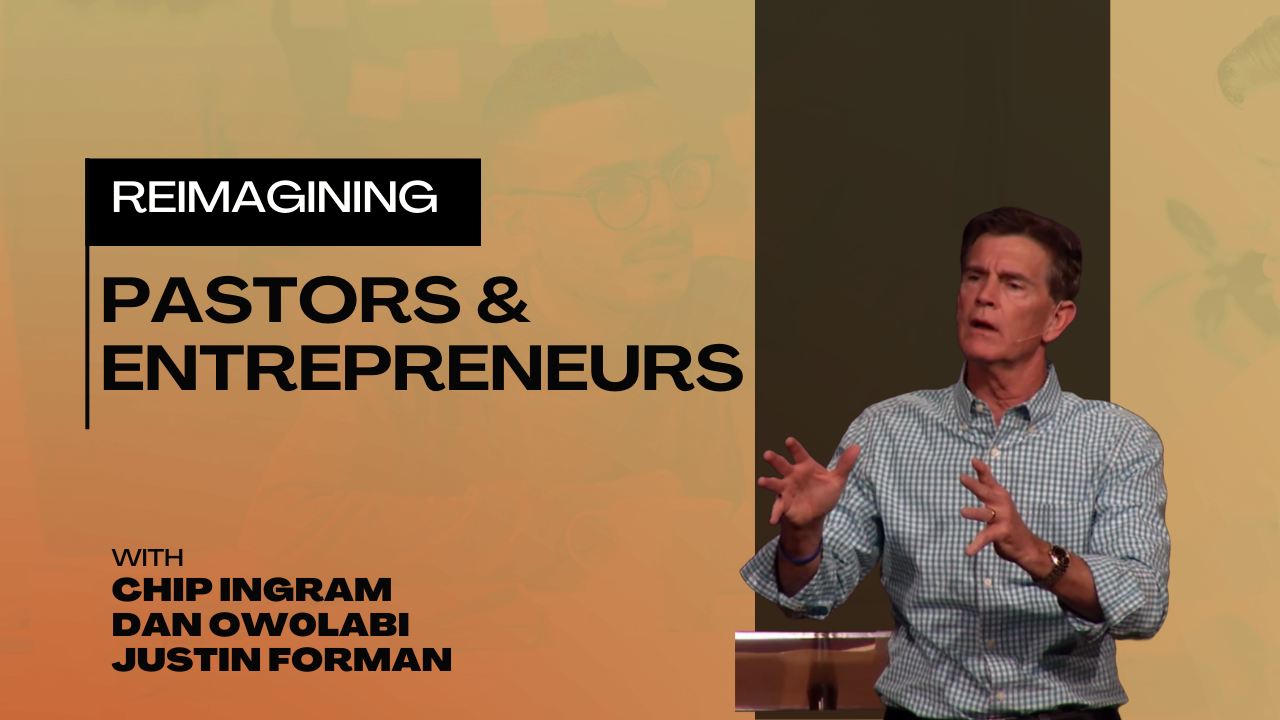
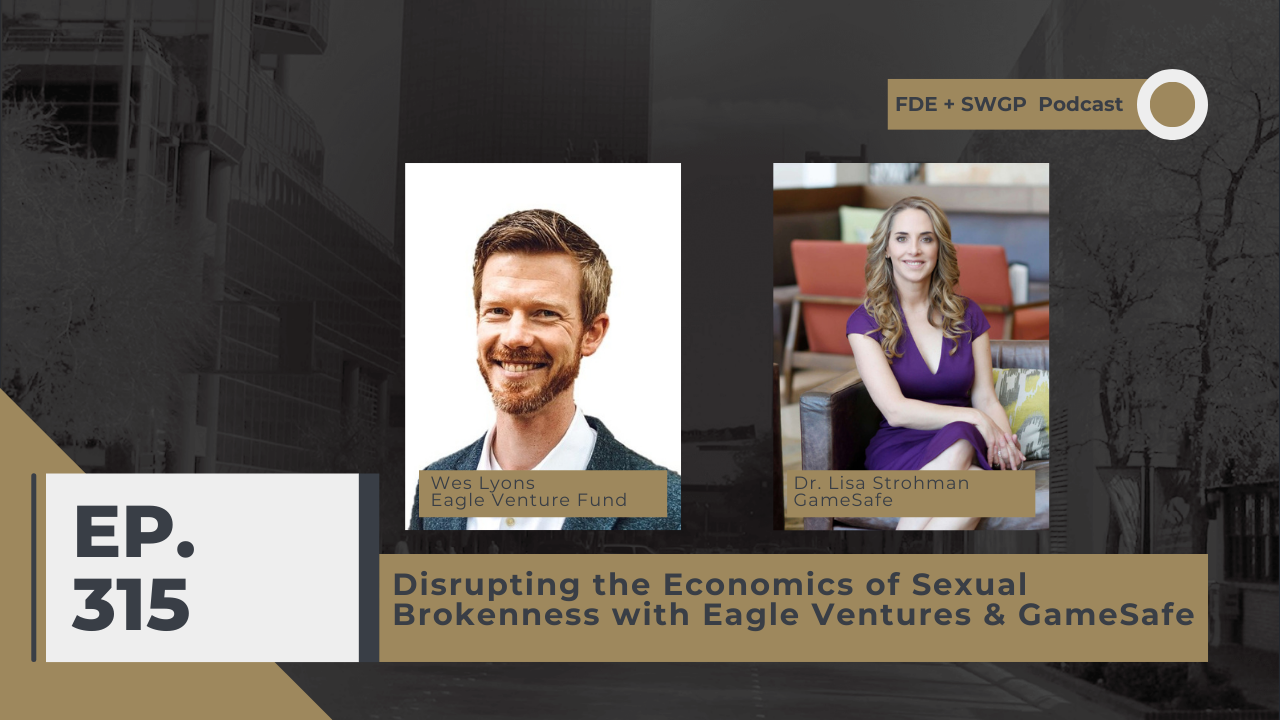


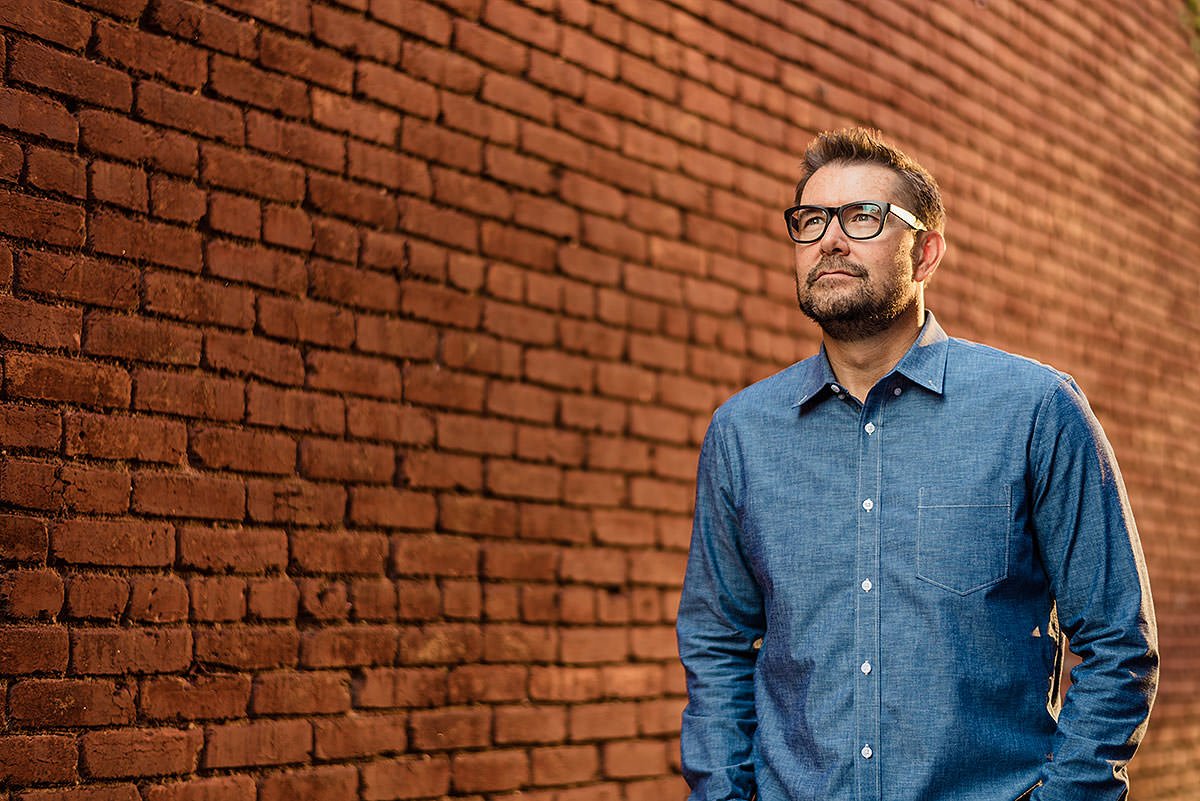
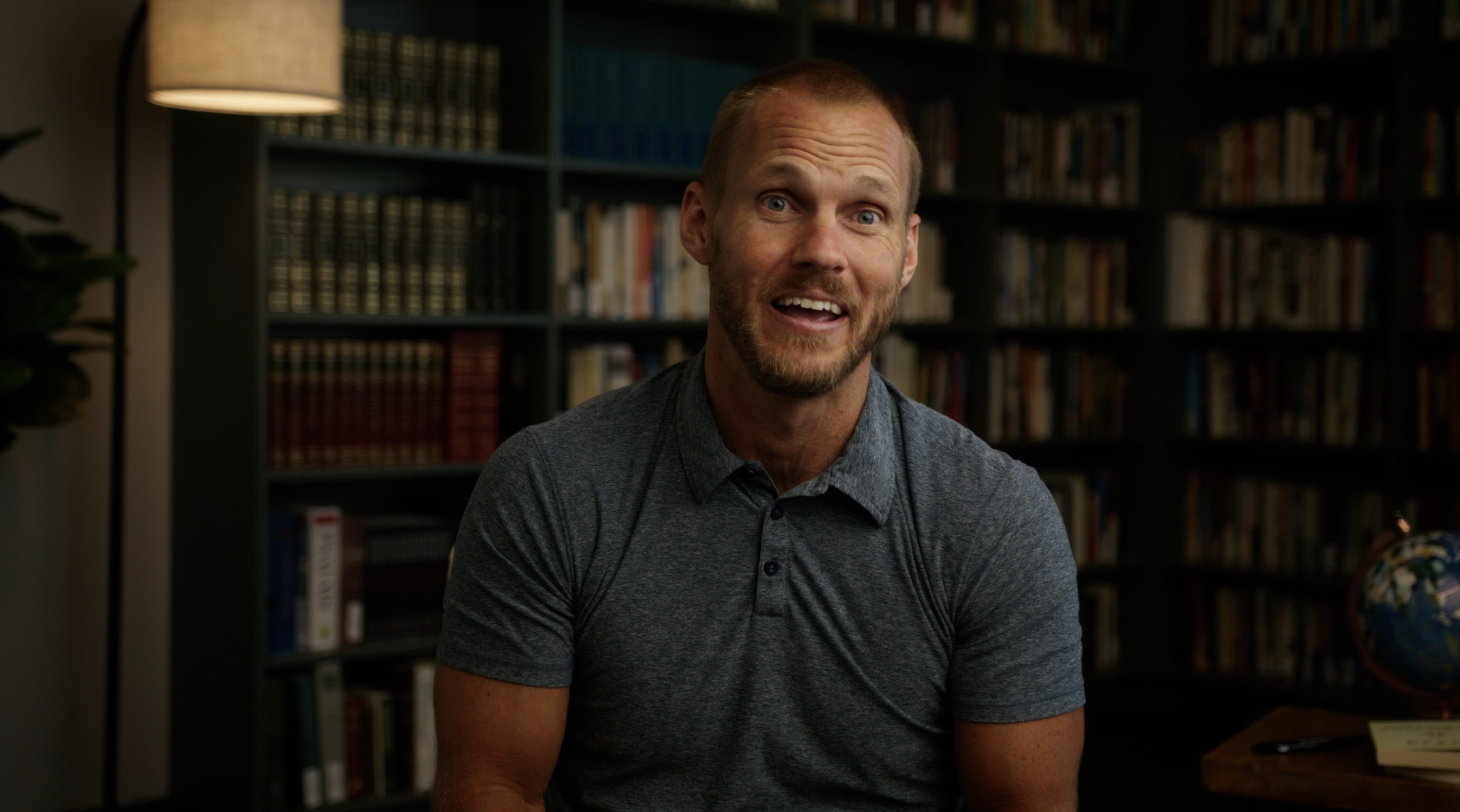
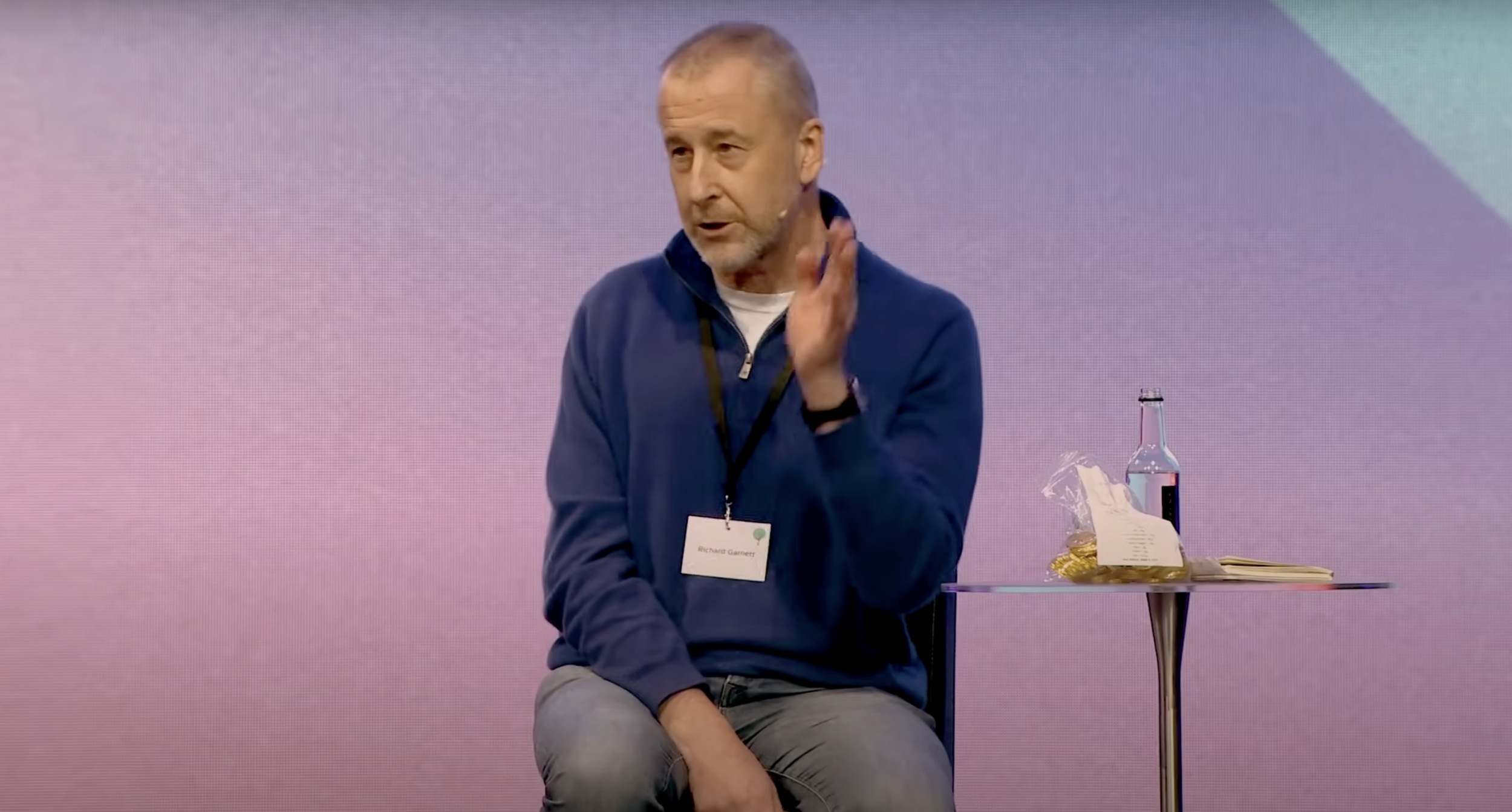

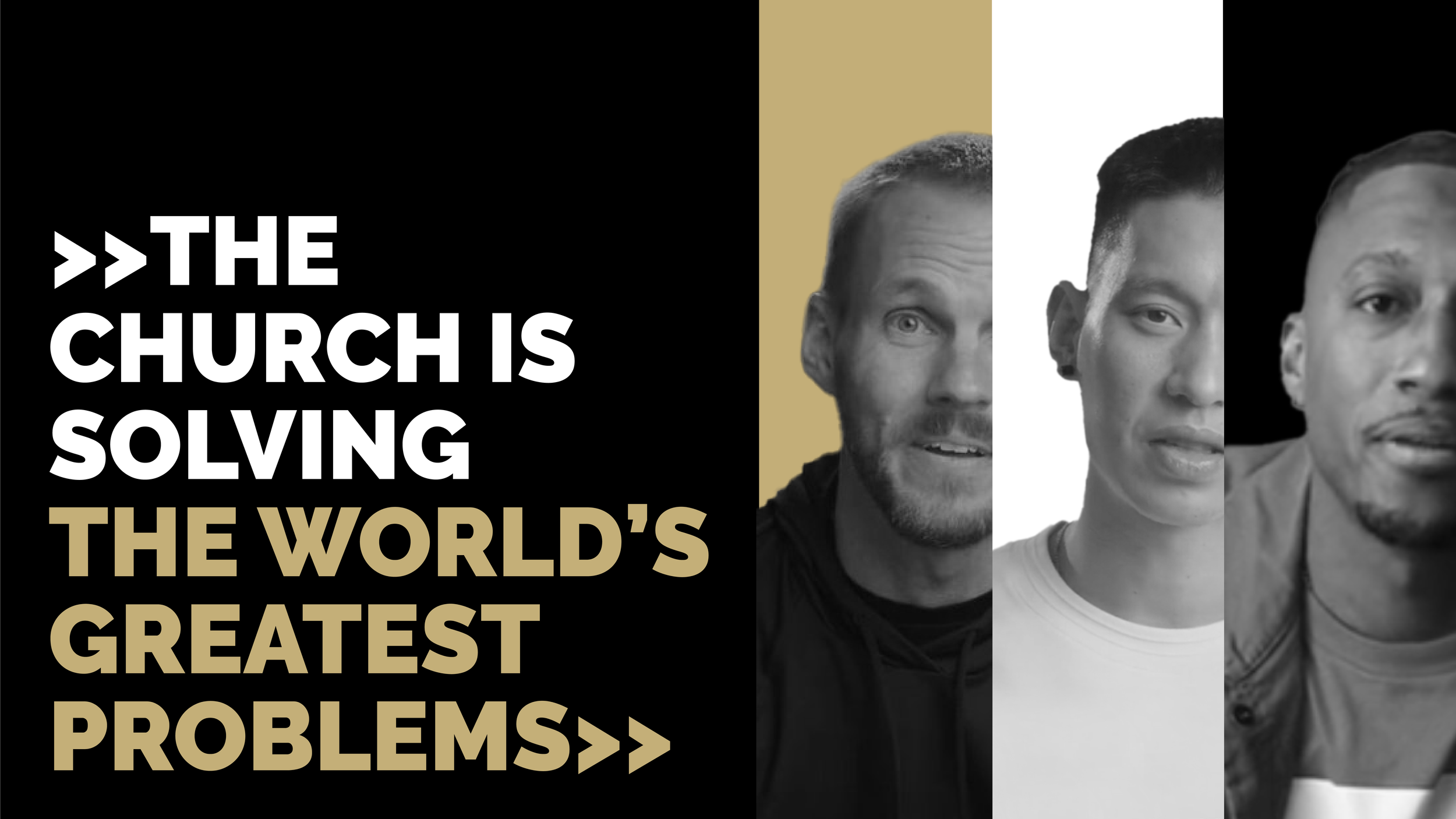

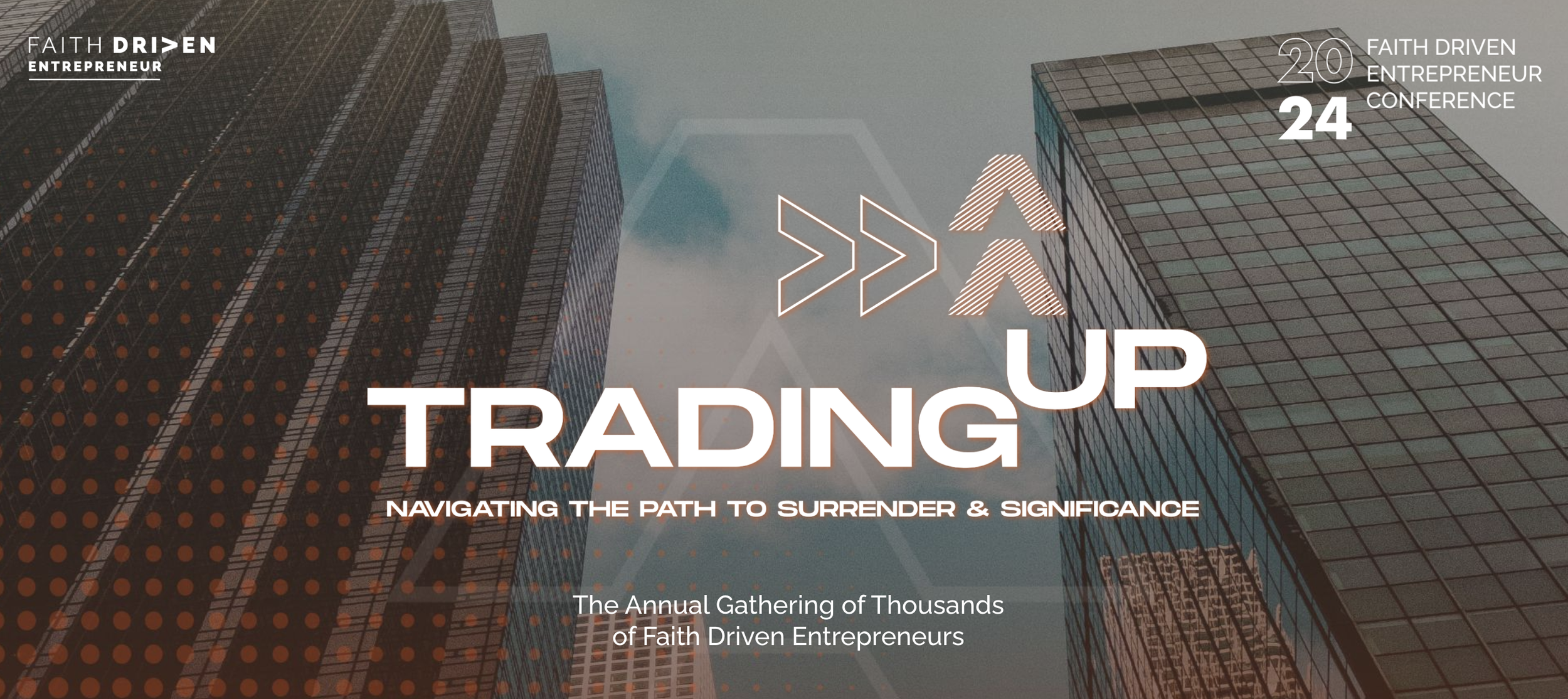
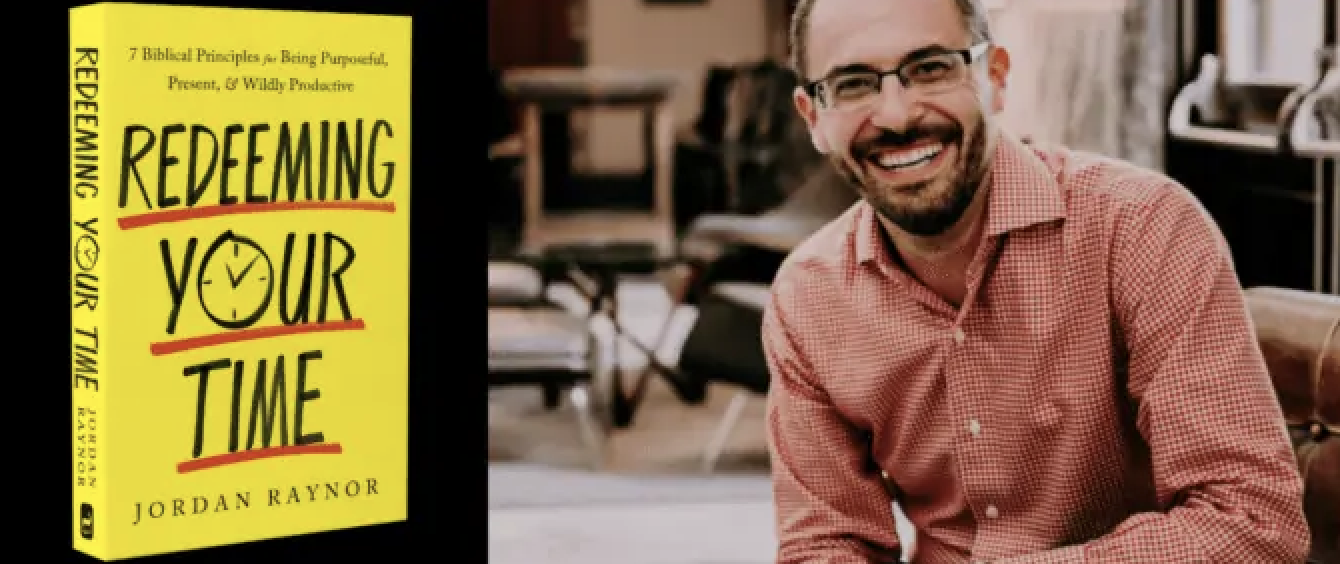
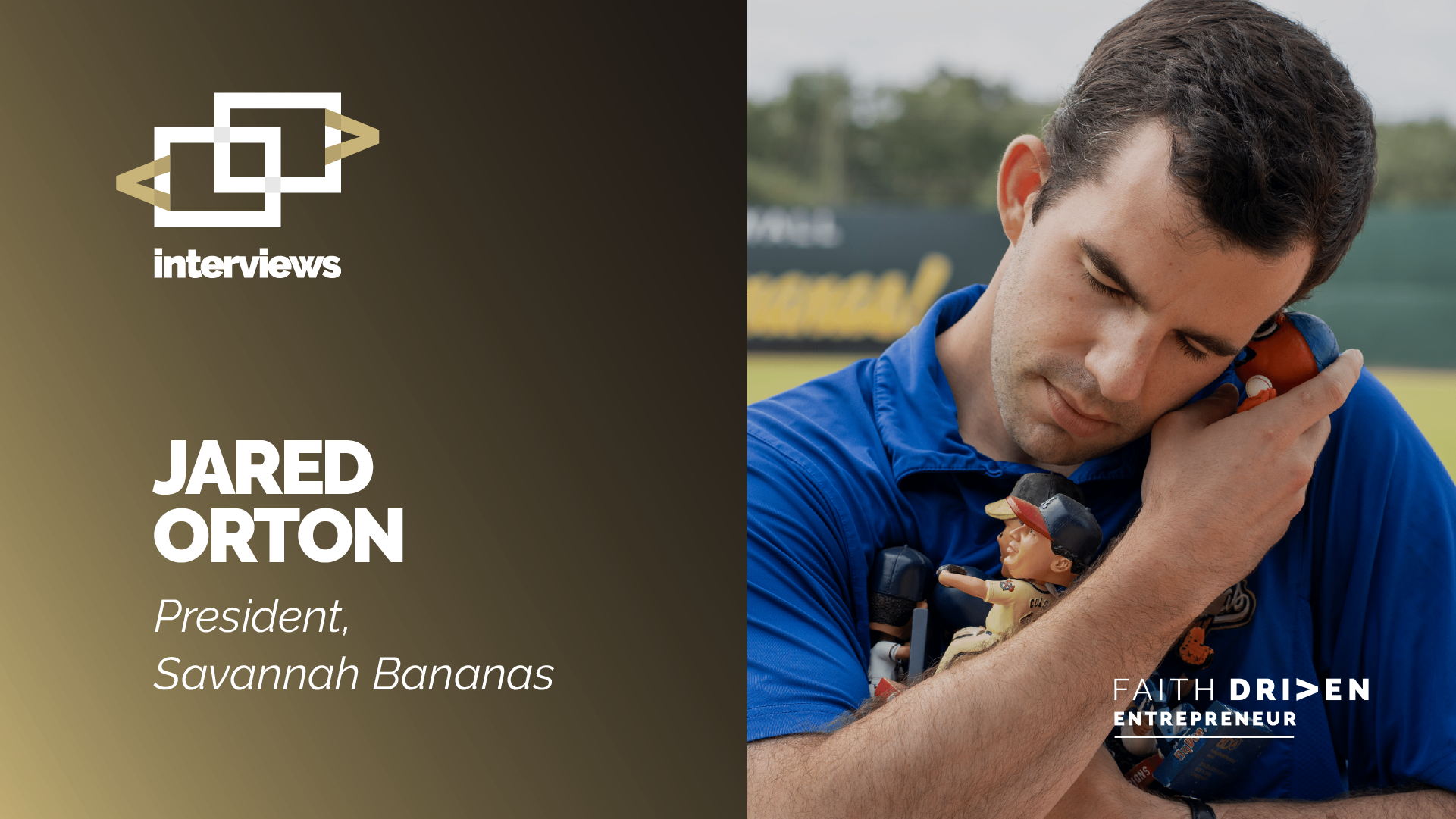
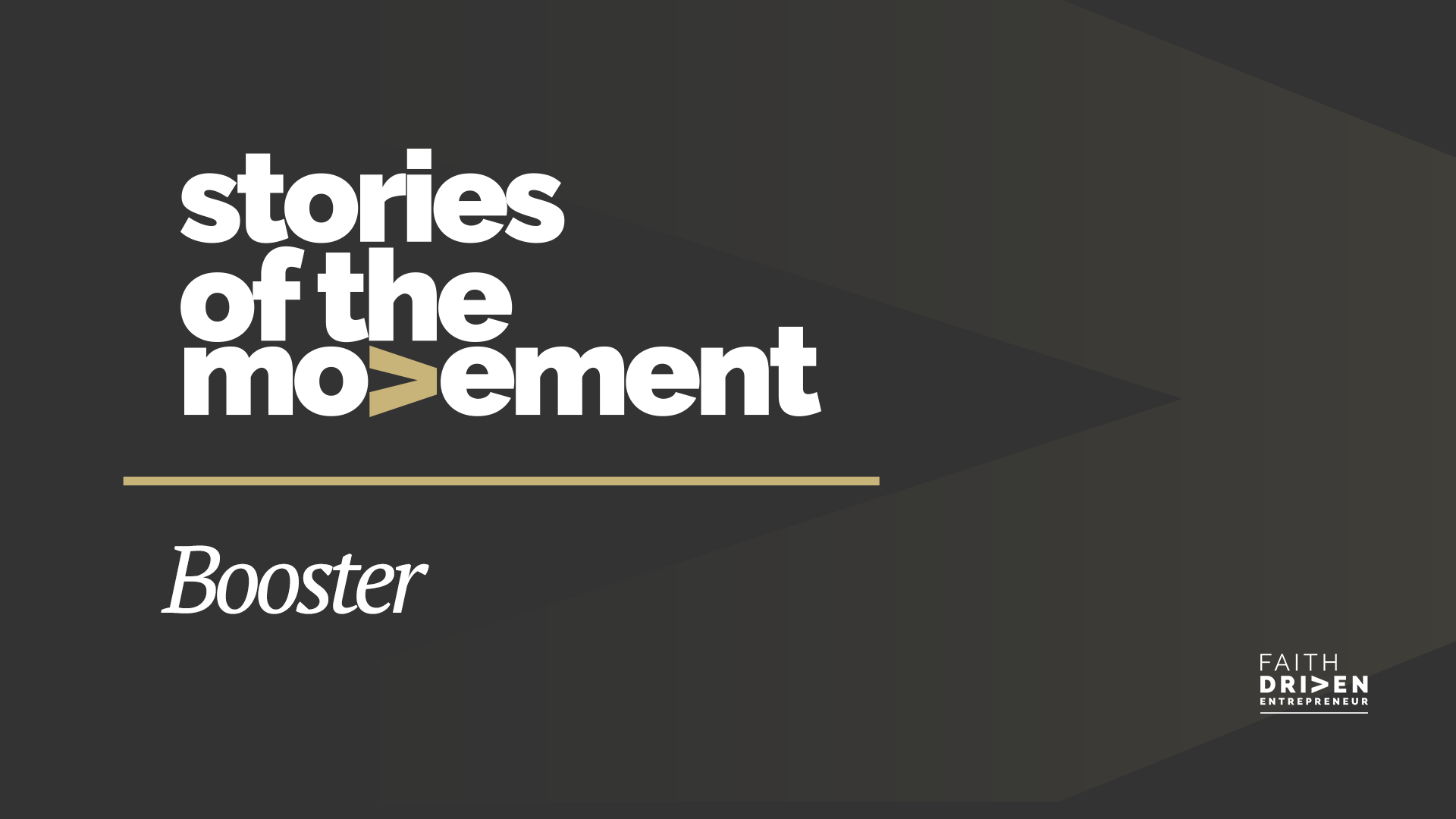



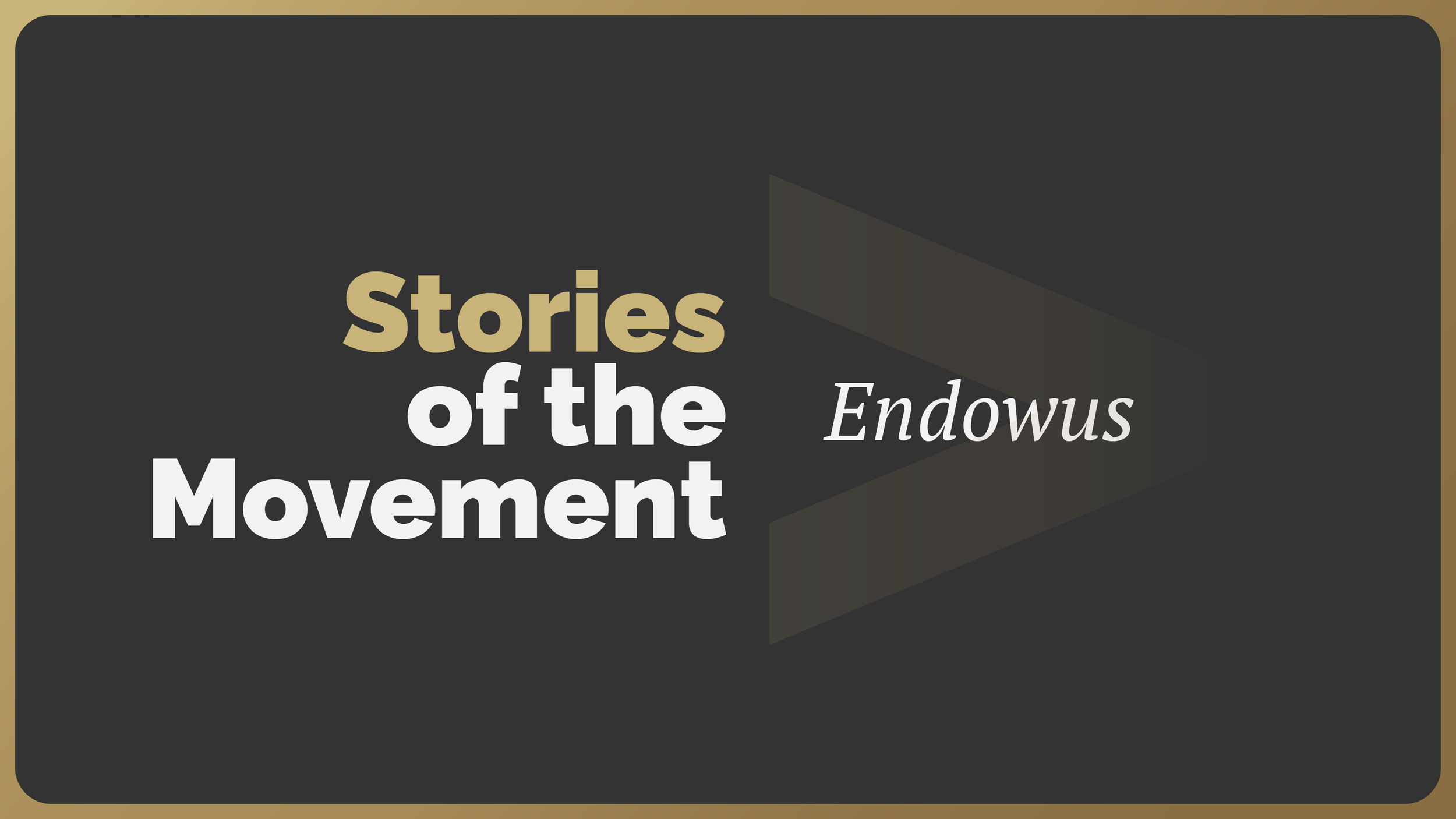

Follow the podcast